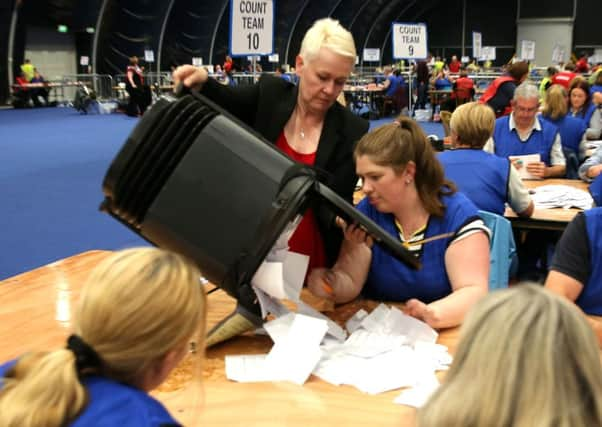Analysis: NI campaign marked with civility '“ but with lesson for any border poll


In the House of Lords this week, former Alliance leader Lord Alderdice reflected how “in a part of the United Kingdom so used to partisanship we were able to find a way of debating this difficult question without deep rancour”.
Northern Ireland’s top Vote Leave figure, Lee Reynolds, says that his research showed that “the message that could move votes for us were the positive ones...I tried to keep it to that as much as possible because I had very good research telling me that this could persuade people”.
Advertisement
Hide AdAdvertisement
Hide AdHe adds of the campaign on both sides: “We were having a debate with Orange and Green players advocating positions, but we were keeping the argument about Europe. I think that’s a broadly healthy development.”
David Hoey of the Leave.eu campaign says that “here I think the nature of the personalities taking the campaigns forward – both Tom and Lee and to a lesser extent myself, because we weren’t the designated campaign – are not individuals that believe in personal politics”.
Although the Northern Ireland campaign largely eschewed the tribal debates of old, there are lessons here for any future border poll. The Remain side was largely credited with having won the economic argument - to the point that some voters said they believed that they would be poorer outside the EU, but would still vote Leave. Yet Remain lost the referendum. National identity, sovereignty and immigration trumped economics for many voters.
Some unionists have counted on Northern Ireland’s huge subsidy from Westminster leading to open-minded voters pragmatically choosing the Union over a united Ireland. Might that old certainty be built on sand?
Advertisement
Hide AdAdvertisement
Hide AdMr Reynolds doesn’t disagree: “Personally, I’ve never been that sold on how strong economic unionism will be at the ballot box...floating voters aren’t moved by economic issues; it’s values issues that appeal to them.”